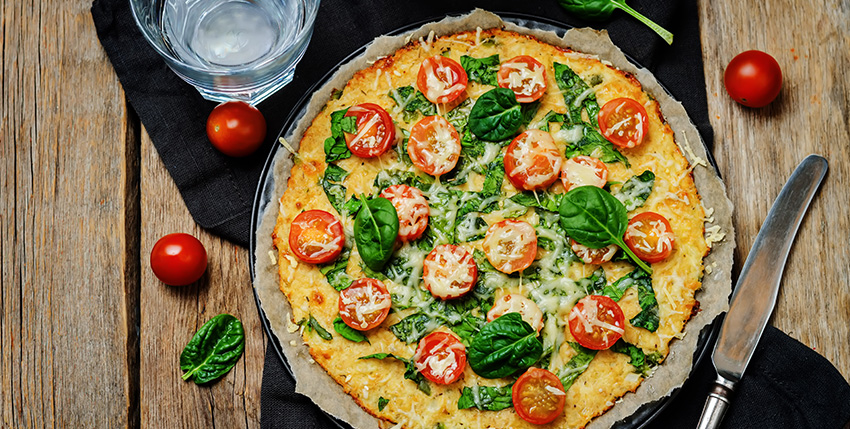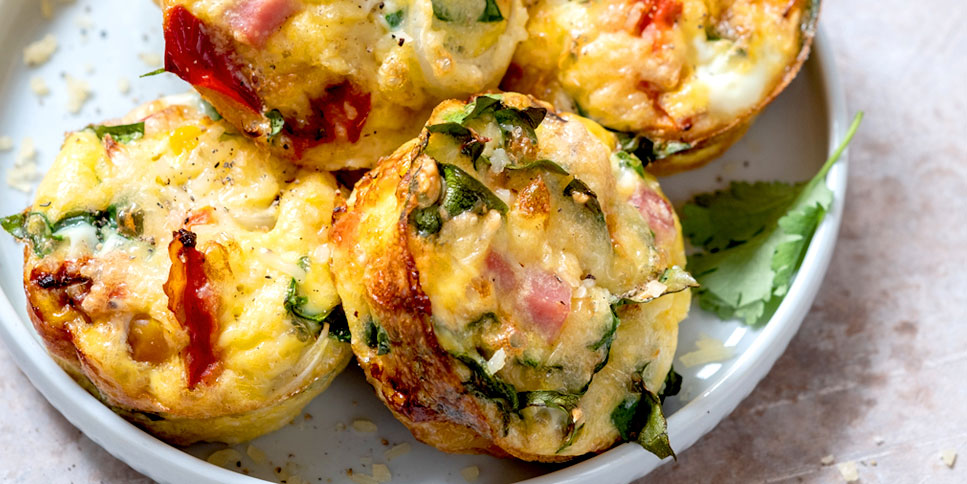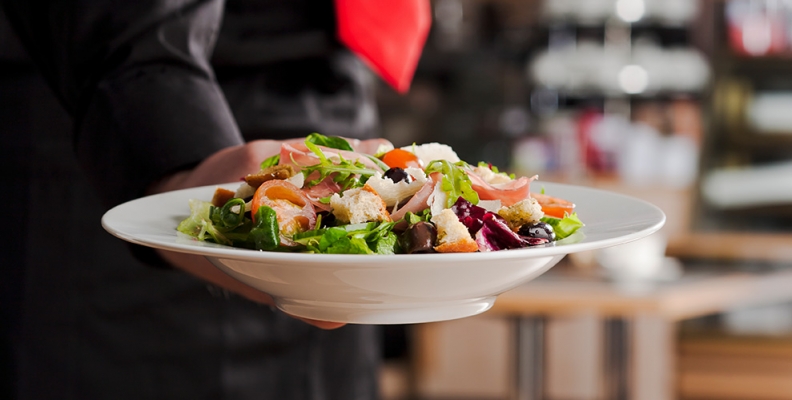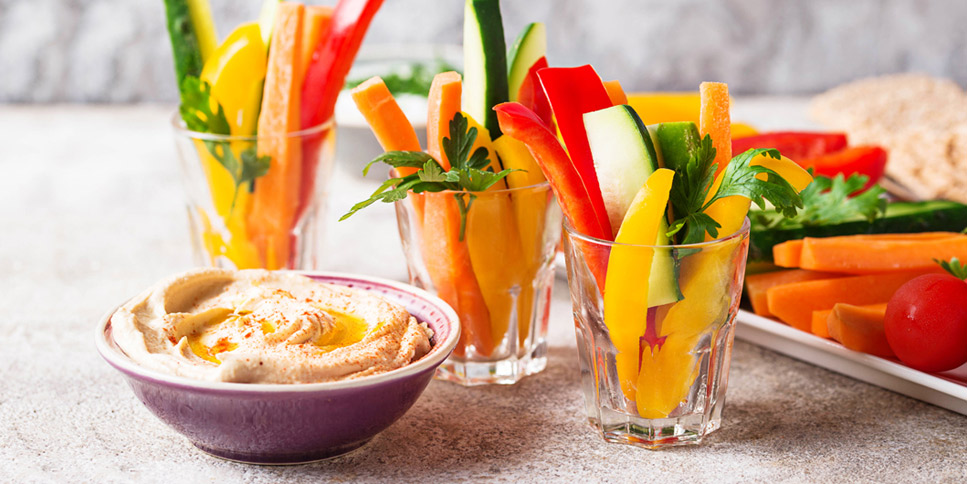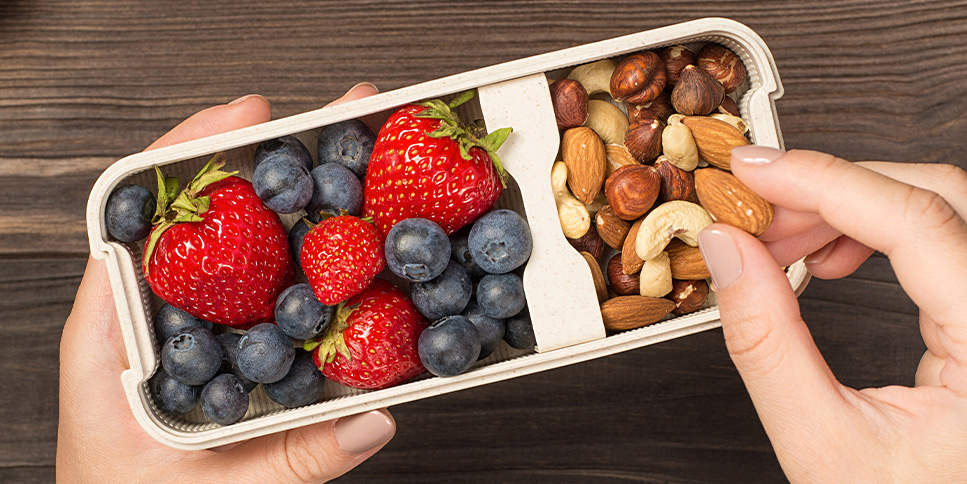You count calories religiously and hit the gym nearly every day. Despite your commitment, the inevitable happens: a hectic day, looming deadline, or traffic jam disrupts your schedule, and you succumb to food cravings. Use these seven tips for dealing with your food cravings and keep your weight control efforts on track.
Reduce Stress

We are all familiar with the term “stress eating.” Chronic stress is a common trigger for food cravings. It also increases levels of cortisol, a stress hormone related to obesity.
Alternative medicine experts recommend whole foods to reduce stress on body and mind. A diet low in simple sugars and high in vegetables, fruits, and healthy fats can help your body fight inflammation and may even prevent depression. Add ginger, turmeric, and flaxseed to help your body manage stress.
Morning exercise can be a stress-busting strategy. It releases endorphins and gets your metabolism in gear for the day. Exercise outdoors, if possible—sunlight helps regulate your circadian clock and raises your vitamin D levels.
Replace Unhealthy Food Cravings with a Healthy Alternative
When unhealthy cravings strike, you can satisfy the urge with a healthy substitute for junk food. Have alternative foods on hand so they are readily available when you need them. For a healthy snack, substitute a smoothie for ice cream, popcorn or nuts for potato chips, and sweet potato fries for french fries. If chocolate is your weakness, opt for dark chocolate containing at least 70 percent cacao—it’s filled with flavonoids and other healthy micronutrients!
With a conscious effort to incorporate healthy alternatives, you will develop mindful eating habits and be less prone to compulsive and binge eating. This not only helps with weight loss but leads to a more positive overall relationship with food.
Consume More Proteins
Increasing your protein intake is a good way to reduce between-meal hunger pangs. Protein digests more slowly than other nutrients and does not produce a spike in blood sugar, meaning you will feel full longer. Protein reduces your body’s secretion of hunger hormones while increasing production of satiety hormones.
Adding more protein to your diet brings other benefits. When you cut total calories, protein helps maintain lean muscle mass. Lean muscle is more metabolically active than fat, so protein gives your metabolism a boost too.
Lean meat, legumes, eggs, seeds, and nuts are all excellent sources of protein to add to your diet.
Eat without Overindulging
Hunger signals are your body’s message that you should eat soon. They are easily distinguished from food cravings because they happen right on cue, based on when you last ate and your activity level. If the timing makes sense, you should eat when you start to feel hungry, not after you are famished. If you wait, you risk eating too quickly and overindulging. Try to eat slowly and stop before you feel completely full to avoid getting ahead of your body’s satiety response.
Eating out does not have to mean overindulging. You can enjoy a restaurant meal without compromising your weight loss plan. Most establishments post menus online, so whenever possible, review them early to strategize your order. Drink a glass of water before leaving home to tamp down your appetite, and choose water to accompany your meal. If salad is your go-to, remember to request dressing on the side so you control the serving size. Dessert is not off limits! A light option is best: think fresh fruit or sorbet.
Drink More Water
Water is one of the most essential tools in your fight against food cravings. By drinking plenty of water throughout the day, you increase your satiety without consuming additional calories. Try drinking one cup thirty minutes before a meal, another while eating, and a third cup after the meal for maximum effect. Add a lemon slice for a bit of interest.
Beyond its role in helping you to lose weight, keeping hydrated will enhance your health in almost every aspect: physical performance, brain function, mood, memory, and energy levels. Research in neurobiology has found that your body’s need for water can even manifest in a craving for food, so you can never go wrong by drinking water when cravings hit!
Distance Yourself from What You’re Craving
The easiest way to combat food cravings is to plan ahead. If you are going to be out for the day, pack snacks or small meals so you do not rely on fast food. When shopping for groceries, buy only healthy snacks—if junk is not in the house, you will not be able to eat it. Eat before going to a party where you know tempting unhealthy food will be served.
If a food craving does hit, distract yourself by doing something that physically prevents you from eating: go for a walk, call a friend, or try chewing gum. Drink a glass of water to quell false hunger signals.
Get More Sleep

Of these seven tips to deal with your food cravings, the final recommendation may be the most surprising: get better sleep! Sleep disturbance is associated with failure to lose weight when dieting. This is not just because of midnight snacking—your body needs adequate sleep for proper metabolic regulation. Sleep is a restorative period for all the body’s systems.
Erratic sleep patterns and sleep deprivation can cause hormonal imbalances. Studies show that sleep loss induces fluctuations in hormonal signals for satiety and hunger and produces cravings for unhealthy foods.
To maximize your sleep quality, try to stick to a regular bedtime and rise at the same time each morning. Make sure your room is as quiet and dark as possible. Avoid going to bed hungry or overly full. Caffeine, alcohol, or exercise too near bedtime can interfere with quality sleep.
Conclusion
If you found these seven tips to deal with your food cravings helpful, check out our weight loss program for more tools and advice to make your weight loss journey successful.
*The links used in this article are being provided as a convenience and for informational purposes only; they do not constitute an endorsement or an approval by Iovate Health Sciences International Inc. or any of its affiliates (“Iovate”) of any of the products, services or opinions of the corporation or organization or individual. Iovate bears no responsibility for the accuracy, legality or content of the external site or for that of subsequent links. Contact the external site for answers to questions regarding its content.


